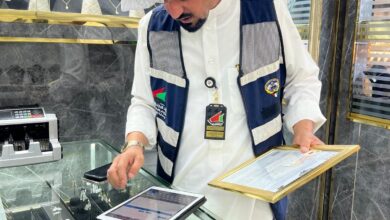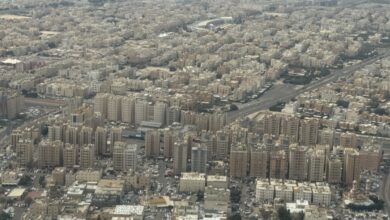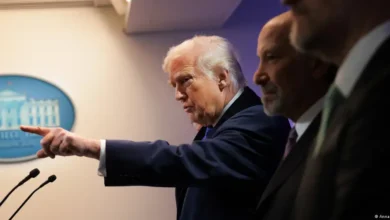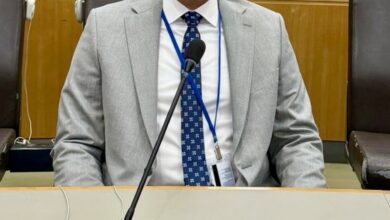Kuwait embraces positive transformation under His Highness the Amir’s leadership: Media
Foreign media delegates said, “There was a strong sentiment abroad that Kuwait is on the verge of a new renaissance that will transition it from a state of stillness to renewed dynamism under the leadership of His Highness the Amir Sheikh Mishal Al-Ahmad.”
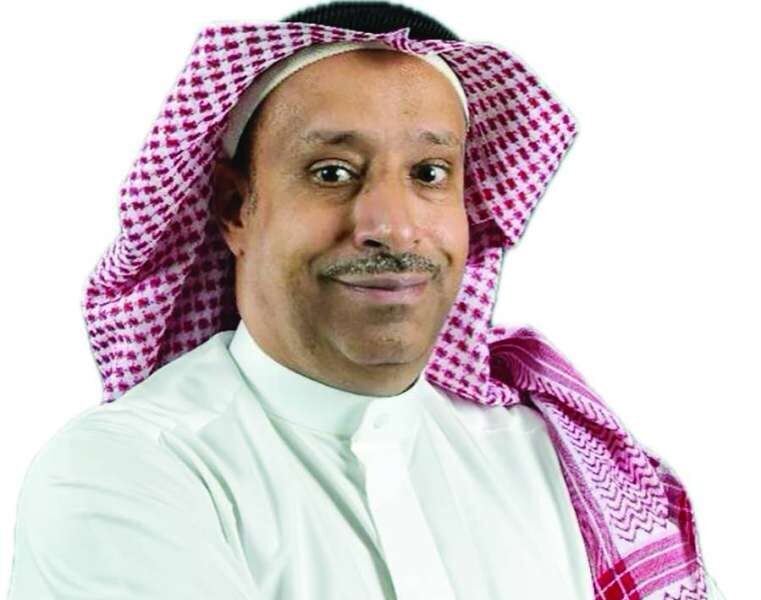
-
Foreign media delegations believe that the new council, through its cooperation and alignment with the aspirations of His Highness the Amir, will usher in significant changes in the country.
-
“The start of any era brings new changes, and hopes are high with the new leadership of His Highness Prince Sheikh Meshaal Al-Ahmad, who has introduced a new vision and opened up broad horizons in all fields,” said Rula Muwafaq, a Lebanese media personality
-
“The new National Assembly must adhere to His Highness the Amir’s vision to propel Kuwait forward and steer clear of conflicts,” said George Alam, the Lebanese political analyst and writer
-
Laila Bin Hadna from the Emirati newspaper Al Bayan said,” The ball is now in the people’s court, and they must respond to the noble call by electing representatives who will champion their rights and work towards achieving them in the next phase.”
The opinions of foreign media delegations, who arrived in Kuwait to cover and follow up on the “2024 Nation” elections, converged on a singular idea: Kuwait stands on the brink of positive changes under the leadership of His Highness the Amir Sheikh Mishal Al-Ahmad. They believe that the new council, through its cooperation and alignment with the aspirations of His Highness the Amir, will usher in significant changes in the country.
In statements to Al-Rai newspaper at the media center dedicated to the National Assembly elections, media figures observed that ‘the new leadership of His Highness the Amir presents various ideas and an enlightened vision, as evidenced by the content of the speeches. Therefore, there was a strong sentiment abroad that Kuwait is on the verge of a new renaissance that will transition it from a state of stillness to renewed dynamism.’
Writer and political analyst Dr. Ahmed bin Salem Patmira from the Sultanate of Oman stated, “Media professionals from various countries share a common belief that Kuwait is on the cusp of significant positive changes that will impact the region.” He noted that ‘this sentiment stems from the new leadership approach of His Highness the Amir, characterized by clarity, direct addressing of mistakes, a revitalized administrative mindset, and his evident prestige, as highlighted in the royal speech on December 20, 2023.’
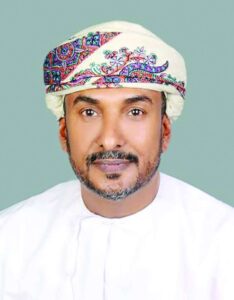
A comprehensive boom
Patmira added, “Kuwait is not just about oil or humanitarian donations. It is a nation of openness, development, science, culture, arts, and politics. It has been a leader in these areas, benefiting everyone. Abdullah Al-Salem Hall will return to its former status as a beacon of democracy, mediating between the two authorities, without harming the country’s interests or its people, especially after the supreme speech. A prince with such characteristics lacks no diligence.”
He pointed out, “Kuwait needs development, especially after experiencing a comprehensive boom in various political, economic, sports, and artistic fields in the early sixties. It was a destination for visitors and job seekers, and it continued to develop and grow until it started to decline in the late eighties, largely due to the electoral movement that impacted development in this Gulf country.”
He further stated, “As we closely follow the 2024 National Assembly elections and the associated activity and movement, we are witnessing a process where the people of Kuwait eagerly anticipate a council that will restore the country’s growth, achievements, and excellence to surpass its past glory. Kuwait, God willing, will continue to be a focal point of attention and the center of global interest, with Thursday marking a significant moment worldwide.”
“This electoral event is genuinely unique on a regional and global scale, and its real success hinges on the seamless coordination between the legislative and executive branches post-election, culminating in the formation of the new Council of Ministers,” added Patmira.
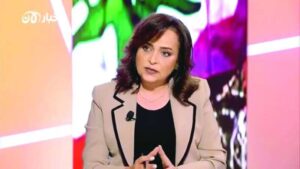
Changes and hopes
For her part, Rula Muwafaq, a Lebanese media personality, said, “The start of any era brings new changes, and hopes are high with the new leadership of His Highness Prince Sheikh Meshaal Al-Ahmad, who has introduced a new vision and opened up broad horizons in all fields. As media professionals, we feel that Kuwait needs to progress and stand at the forefront alongside the Arab Gulf states.”
Muwaffaq added, “The Kuwaiti economy needs renewal by reducing reliance on oil and transitioning to new economic pathways, diverging from the oil-centric vision. This is the opportune moment for transformation, as we have observed encouraging stances for the new era. The various proposals outlined in His Highness the Amir’s speeches affirm that Kuwait is on the brink of significant changes.”
She continued, “The new National Assembly must actively contribute to these transformations and changes by fostering innovative ideas and mindsets. While there may not be ample time to shift the mood of the Kuwaiti voter due to the absence of influence tools within this short timeframe, we remain hopeful that the elections will usher in new changes.”
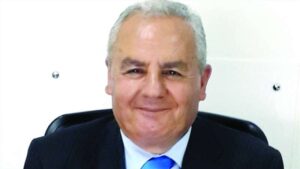
New era
In turn, George Alam, the Lebanese political analyst and writer, said, “Commencing the elections with the standards of freedom and democracy, allowing Kuwaiti citizens to engage in these developments that contribute to the country’s progress, is a positive step. It aligns with the messages of His Highness the Amir, particularly his recent speech in the National Assembly, which was clear and impactful.”
Alam pointed out that “the National Assembly must confront these challenges with a spirit of cooperation and accelerate the pace of work, moving away from narrow interests and focusing on turning a new page that aligns with His Highness the Amir’s ideas.” He stated, “The repeated elections, as long as they invigorate Kuwait with democratic vitality, are seen as a challenge.”
He continued, “The new National Assembly must adhere to His Highness the Amir’s vision to propel Kuwait forward and steer clear of conflicts.”
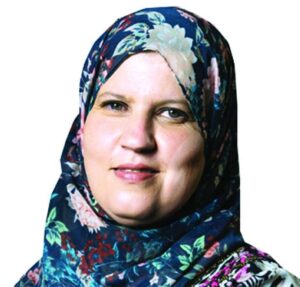
As for journalist Laila Bin Hadna from the Emirati newspaper Al Bayan, she viewed the elections as “an important step in rectifying the political course following the council’s dissolution. The most crucial step that follows is the people’s wise selection of their representatives in the National Assembly elections.” She noted that “the upcoming period is an era of new and effective political work that will benefit Kuwait. The ball is now in the people’s court, and they must respond to the noble call by electing representatives who will champion their rights and work towards achieving them in the next phase.”
Laila added, “Kuwait will witness a democratic celebration that signifies a change in approach driven by the people, leading to a new era of cooperation between the two authorities to serve Kuwait and its citizens. This marks an important milestone in correcting the political trajectory following the council’s dissolution. The crucial next step is the people’s wise choice of representatives.”
Pioneering experience
For his part, Mirza Al-Khuwailidi, the editor-in-chief and editor of Gulf affairs at Asharq Al-Awsat newspaper, said, “The parliamentary elections mark the twenty-first in Kuwait’s history, with the country in a state of readiness and a competitive atmosphere that has given the Ramadan landscape a new dimension through the large-scale gatherings organized by candidates across the five electoral districts.”
Al-Khuwailidi added, “The democratic atmosphere is not new to Kuwait; it is one of the country’s distinctive features. Kuwait has a history of active political life dating back to before independence, including the establishment of the first written constitution and Shura Council in 1921. Kuwaitis were also the first in the Gulf region to form an elected legislative council in 1938. The parliamentary system, championed by Sheikh Abdullah Al-Salem Al-Sabah, was established during his reign, marked by the approval of the constitution, the first of its kind in the Gulf.”
He pointed out, “The democratic experience in Kuwait, despite the obstacles it faced, has proven to be one of the most crucial safety valves that have preserved the country and strengthened its political structure, especially in the face of the turbulent circumstances affecting the region and the world.”







